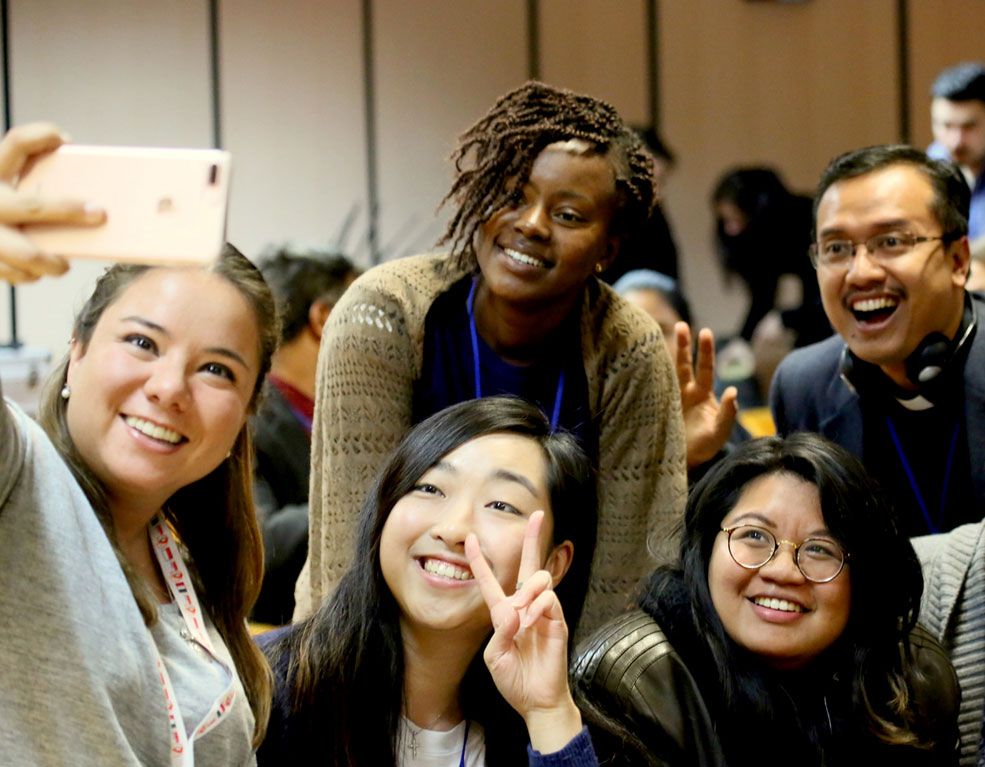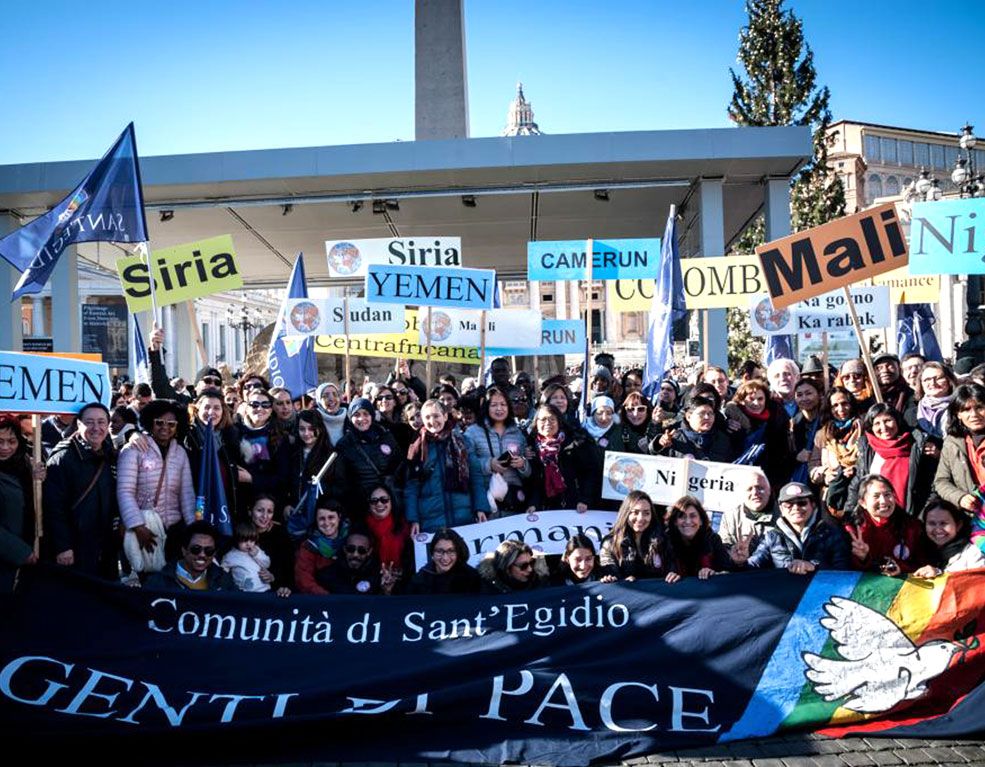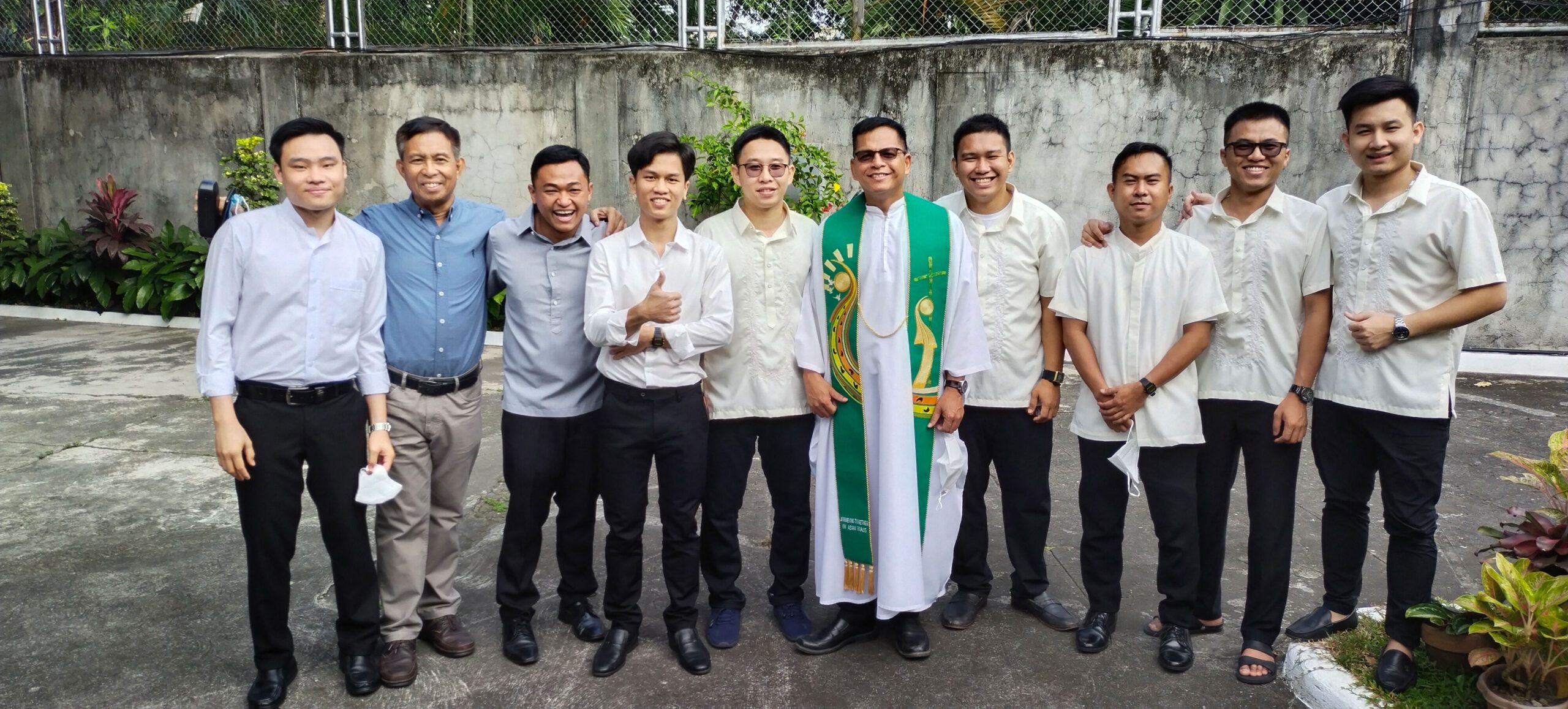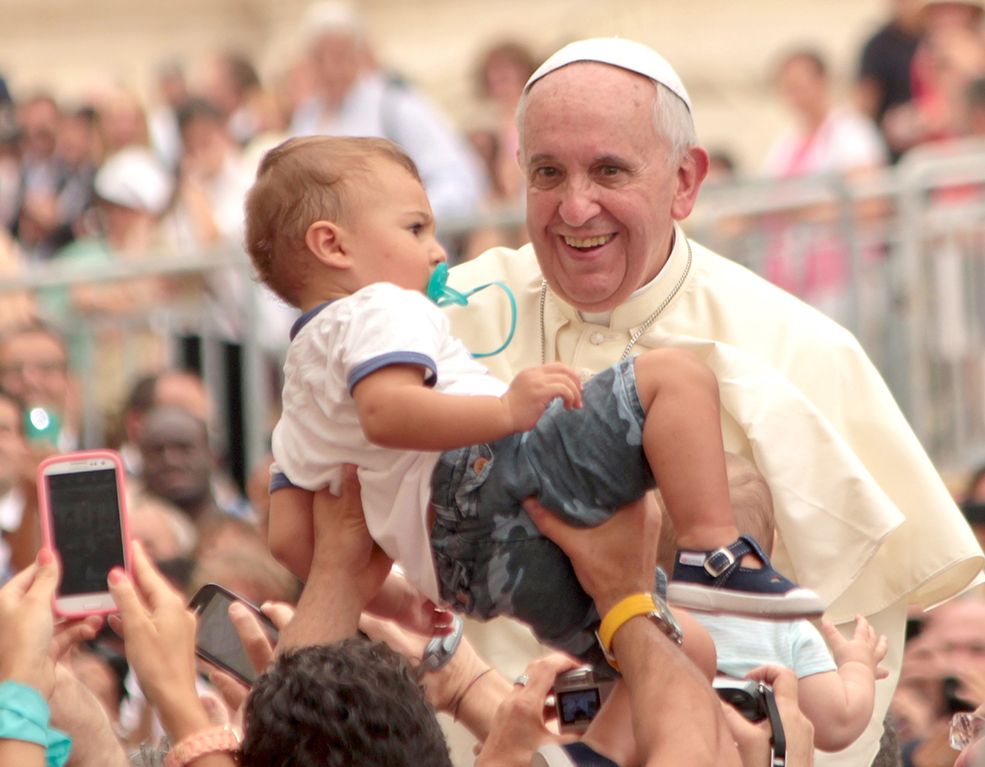Every day we worry about not only our chores, but also our well-being, our desires, and our dreams of accomplishing great achievements. It is this dynamism that leads us to make everyday decisions in order to be happy, eventually building up to a personal definition of a “happy life.” But how do we get there?
There are no maps or GPS to guide us to this life of happiness that we desire. We know that, regardless of the life we are building, no one will issue us a “happy person” diploma. However, the words of Jesus seem to be the starting point for discerning a path capable of acquiring happiness and life.
In affirming that He is “the way, the truth and the life” (Jn 14: 6), Jesus comes to fulfill His own vocation: to be life in abundance for all (Jn 10:10). But how do we concretize these words in our daily lives?
What Happiness And For Whom?
There’s a lot to be said about happiness. On the one hand, it is not an abstract concept; on the other hand, its implications are always beyond the individual person. No one is happy alone. However, for happiness to become authentic in human life it also has the mark of God – it is a divine gift!
This divine-human articulation is not always easy to establish. Instead of listening to the voice of God, we prefer to hear only ours, sometimes even becoming suspicious of “the good intentions God has for us”. This is neither a fatalistic nor an impossible situation. On the contrary, it allows us to live our humanity in fullness – a humanity that demands a relationship and a common path.
Example Of St. Comboni
The life of St. Daniel Comboni is a good example. First, he felt called to the mission in the heart of Africa. The call of God met Comboni’s deepest longings for his own being. Then he “woke up from his dream” and looked at the reality that surrounded him: he was the only surviving son of his parents. They were getting old and will need their son’s help in their old age. Moreover, at a time when the missionaries always ended up dying because of the then incurable African diseases, Comboni’s departure for Africa was an indirect announcement of his death.
It could be said that the vocation which Comboni believed he had and longed for would never be achieved. It could also be said that this vocation certainly could not come from God. However, Comboni’s happiness began when he dared to set his feet on the path of serious vocational discernment.
This path, not to walk alone, offered him assurances and strength to delve into the specificity of his vocation. Starting from this insight, Comboni found solutions to his problems. Although his parents did not understand the vocation of their son and wished that he remain with them, they reassured their son that they were not helpless in their old age. In supporting their son they were able to see and feel their son’s happiness – the happiness of a full and fulfilled life.
Only in this full realization of life can Comboni’s words be understood when he says, “I have only one life to consecrate to the salvation of these souls. I wish I had a thousand to spend them all to such a purpose” (Writings, 2271).
His obstacles and difficulties gave rise to a happiness so authentic that Comboni wished to live forever in order to fulfill and carry out his vocation. And what a joy it is to see today, through so many missionaries all over the world, that the life of Comboni has become life in abundance for the missionary cause! Whose happiness was it? God’s? Certainly, as Comboni lived with this happiness—that which continues to perpetuate itself through the great Comboni Family which shares the same vocation as Comboni. This is life in abundance which remains beyond time, and it happens whenever one dares to discern responsibly and live the vocation that is given him/her as a gift that mirrors the deepest being within each one.
Life In Abundance
Like St Daniel Comboni, when we look at the future, we do not look for ways to survive nor do we dream of a life that is simply lived routinely and unrelated to personal goals. On the contrary, we dream about what we would like to have, to achieve and, above all, what we would like to be. In this dream, we often seem to compete with God, even setting up barriers that distinguish “what I want” from “what God wants”.
But the common goal of living life to the fullest – a life in abundance – necessarily nullifies this idea of competition. Perhaps the dream is often the same, but the way of arriving there and living it is different. In our humanity we see only the immediate and it always seems that things could be easier or more in tune with our own way.
If we analyze it well, the major obstacles do not even stand in the sphere of what God wants, nor in the sphere of what we want, but in the opinion of the people around us.
Comboni discovered the fullness of life and fulfillment of his dream by immersing himself in God’s dream for him. Before embarking on the mission in Africa, he thought that his life would be fulfilled if he placed it in the service of the mission in Japan. Only maturity led him to totally fall in love with the African mission, and even there he felt the need for help for a true discernment of his vocation. In fact, life in abundance is the mark of happiness, rather than implying just the will of the person. It also implies an encounter: a dream encounter with God, discerned hand in hand with those whose vocation is precisely to help others walk and discover the life to which they are called.
Abundant Happiness
Vocation is happiness in abundance! A happiness that is never easy (the most beautiful roses are the ones that have the most thorns), but which always results in abundance for the one who accepts it and for all those around (even if, initially, they present themselves as obstacles to living the vocation).
In the vocational experience, you have to put your feet on the path with the humility of those who seek and who, therefore, need help to walk and discern; but also with the faith capable of recognizing that God will manifest Himself beyond the difficulties that may arise. As in the life of St. Daniel Comboni, discernment and acceptance of the challenges of vocation and the time of encounter begins with a true encounter with God and looking for solutions to the difficulties that seem to appear as insurmountable obstacles to vocation.






























